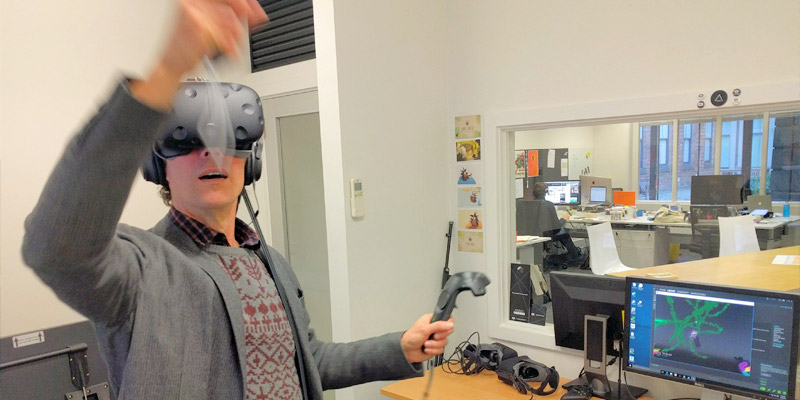VR therapy for youth mental health
Project overview

We are investigating how virtual reality technologies like HTC Vive and Samsung Gear VR can be used to improve young people’s mental health and wellbeing.
Virtual reality has already been used successfully to treat mental health conditions such as phobia. It may also be beneficial for young people suffering a broader set of conditions such as psychosis and depression. VR can provide compelling experiences that might increase youth engagement in treatment. New, high-quality yet affordable platforms are bringing VR within the reach of resource-strapped clinics.
Our project involves a range of activities such as designing therapeutic VR experiences, testing their effectiveness and acceptability, and exploring how VR can be incorporated into clinical practice.
We use the ‘participatory design’ approach, bringing young people, clinicians and researchers together to design useful and usable technology. Design techniques for VR are not as well-established as those for ‘two-dimensional’ screens, so one of our challenges is to find ways for participants to devise and represent 3D experiences.
Our team has experience in designing Internet-based technologies to deliver mental health services. We are working in conjunction with Orygen Youth Health, an innovative Australian clinic that specialises in early intervention.
Project team
- Greg Wadley
- Mario Alvarez-Jimenez (Centre for Youth Mental Health, Orygen: The National Centre of Excellence in Youth Mental Health)
- Sarah Bendall (Centre for Youth Mental Health)
- Ben Loveridge (Learning Environments)
- Reeva Lederman
- John Gleeson (Australian Catholic University)
Project information
Funding source: MNSI Seed Funding 2016
